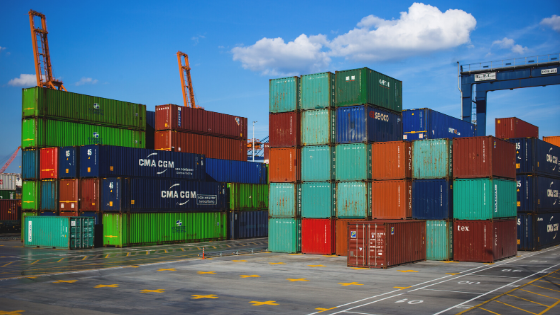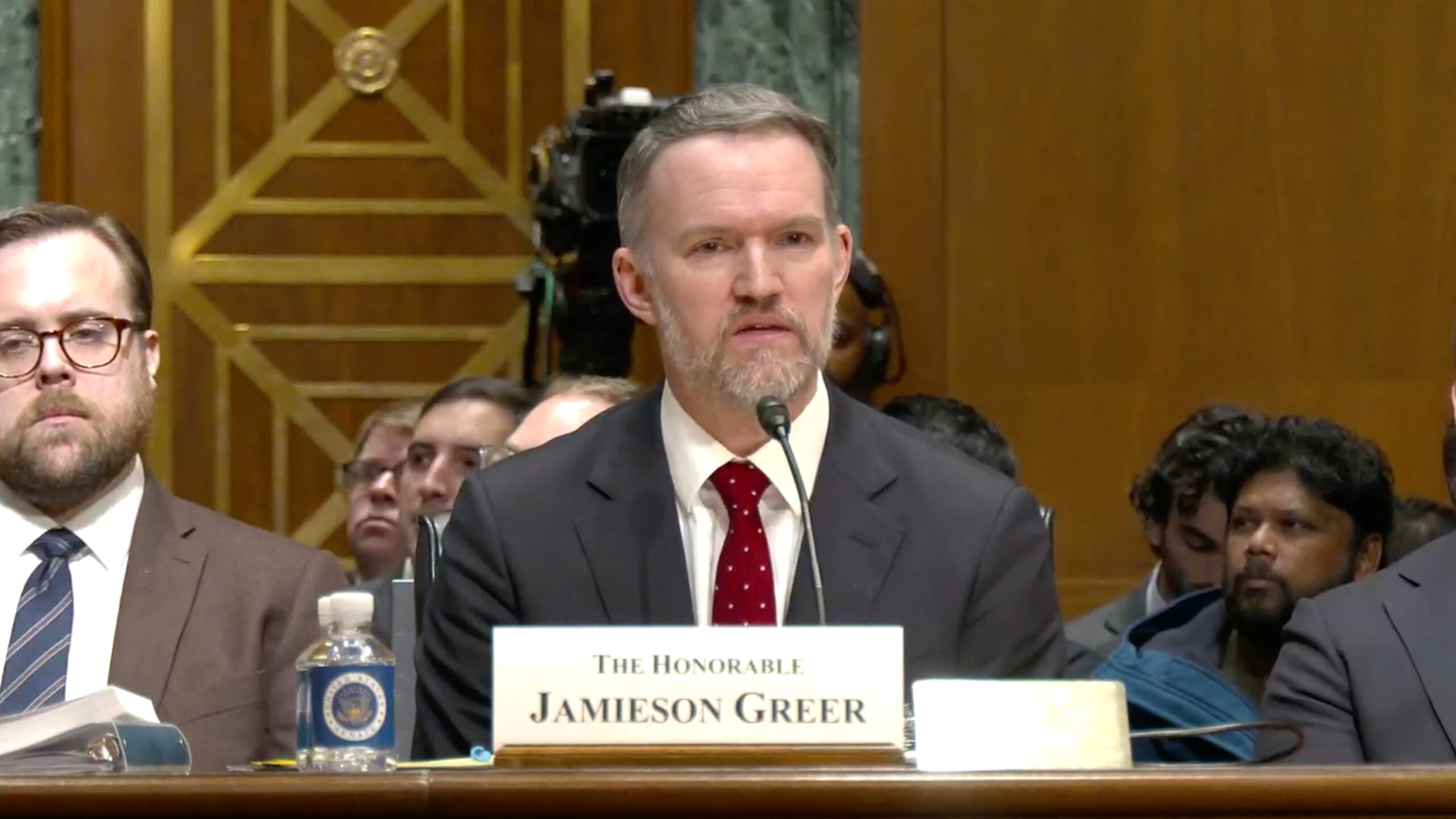Editor’s note: Curtis Ellis makes a fundamental point. Trade policy should be about building investment in production as well as employment. The cheap consumer goods pursuit is the wrong path to national greatness, as the Asian economies have shown us.
It’s well past time to ask whether procuring cheap imported consumer goods should be the goal of our foreign trade policy and if it’s the best way to raise Americans’ standard of living.
[Curtis Ellis | December 3, 2019 | American Greatness]
Another tranche of tariffs on Chinese imports is set to go into effect on December 15. That has the usual suspects gnashing their teeth.
The nattering nabobs of negativism continue to repeat the falsehood that American consumers are bearing the cost of the tariffs. They aren’t, as the Consumer Price Index shows and as numerous corporate media sources—including Reuters and MarketWatch—as well as the Federal Reserve, have been forced to admit.
Nonetheless, the supercilious sophisticates cling desperately to their professed belief that Americans benefit from cheap imports, nay, this should outweigh all other considerations in trade policy.
But is it true?
It’s well past time to ask whether procuring cheap imported consumer goods should be the goal of our foreign trade policy and if it’s the best way to raise Americans’ standard of living.
These questions have been the subject of debate throughout our nation’s history. America’s Founders answered with a resounding “No.”
The tea sold by the British East India Company underpriced the leaf colonial merchants were offering. King George’s prime minister Lord North believed that would convince Americans to buy it. “For,” as North said, “men will always go to the cheapest markets.” The Sons of Liberty tossed it in Boston Harbor instead.
The new nation’s first significant piece of legislation, the Tariff Act of 1789, among other things, sought to prevent lower-cost foreign goods from being dumped in America and smothering our own infant industries.
To those who said America should continue buying its manufactured goods from Great Britain, then the world’s low-cost producer, Thomas Jefferson advised “purchasing nothing foreign where an equivalent of domestic fabric[ation] can be obtained, without regard to difference of price.” (Emphasis added.)
Abraham Lincoln’s economic philosophy gave production primacy over consumption as the way to raise the American standard of living.
The goal is “to produce dear labour, that is, high-priced and valuable labour,” wrote Henry Carey, Lincoln’s economic adviser. High-priced laborers would produce more and be able to spend more. Consumption would rise in tandem with production and earning.
“Every man is a consumer to the whole extent of his production. To that point he will go, and beyond it he cannot go,” Carey wrote.
That is: by earning (producing) more is one able to consume (buy) more.
But the American attitude toward “cheap” was perhaps best summed up by William McKinley in a campaign speech he delivered in 1889:
They say “everything would be so cheap” if we only had free trade. Well, everything would be cheap and everybody would be cheap. I do not prize the word “cheap.” . . . It is the badge of poverty . . . when things were the cheapest, men were the poorest. . . . Cheap? Why, cheap merchandise means cheap men, and cheap men mean a cheap country; and that is not the kind of Government our fathers founded . . . We want labor to be well paid, we want the products of the farm . . . we want everything we make and produce to pay a fair compensation to the producer. That is what makes good times.
Fair compensation to the producer is what makes good times.

This was the lodestar of economic policy. Henry Carey pointed to Great Britain as an example of how poorly paid workers are incapable of consuming anything, however cheap. And if there’s no market, there’s no point in production.
Another Henry, Henry Ford, understood this. He knew mass-production required a mass market, which meant people needed to have money to spend and time to enjoy spending it.
Ford gave an interview explaining “Why I Favor Five Days’ Work With Six Days’ Pay”:
We must largely reckon with the positive industrial value of leisure, because it increases consumption.
Where people work longest and with least leisure, they buy the fewest goods. No towns were so poor as those of England where the people, from children up, worked fifteen and sixteen hours a day. They were poor because these overworked people soon wore out—they became less and less valuable as workers. Therefore, they earned less and less and could buy less and less.
Business is the exchange of goods. Goods are bought only as they meet needs. Needs are filled only as they are felt. They make themselves felt largely in leisure hours. The man who worked fifteen and sixteen hours a day desired only a corner to be in and a hunk of food. He had no time to cultivate new needs. No industry could ever be built up by filling his needs, because he had none but the most primitive.
Think how restricted business is in those lands where both men and women still work all day long! They have no time to let the needs of their lives be felt. They have no leisure to buy. They do not expand.
The people with a five day week will consume more goods than the people with a six day week. People who have more leisure must have more clothes. They must have a greater variety of food. They must have more transportation facilities. They naturally must have more service of various kinds.
Instead of business being slowed up because the people are ‘off work,’ it will be speeded up, because the people consume more in their leisure than in their working time. This will lead to more work. And this to more profits. And this to more wages. The result of more leisure will be the exact opposite of what most people might suppose it to be.

This understanding guided economic policy for the better part of the 20th century. Americans were gainfully employed producing the goods they consumed. At that time, consumerism was a closed loop, “a virtuous cycle,” in which “consuming” (buying) recycled wealth into the pockets of the consumers who were, significantly, producing the goods they bought.
Americans understand this. The free-trade lobby has tried to sell their bill of goods on the premise “everyday low prices” help Americans, but no one is buying it.
Making the tariffs on China permanent would give businesses the long-term certainty they need to rebuild their supply chains in the United States, restarting the virtuous cycle that made America the world’s greatest producer and consumer.
That would be good for the world as well as for America.
As Henry Carey wrote, “To raise the value of labor throughout the world, we need only to raise the value of our own. . . . To diffuse intelligence and to promote the cause of morality throughout the world, we are required only to pursue the course that shall diffuse education throughout our own land, and shall enable every man more readily to acquire property, and with it respect for the rights of property.”
America First does not mean America alone.
Read the original article here.












